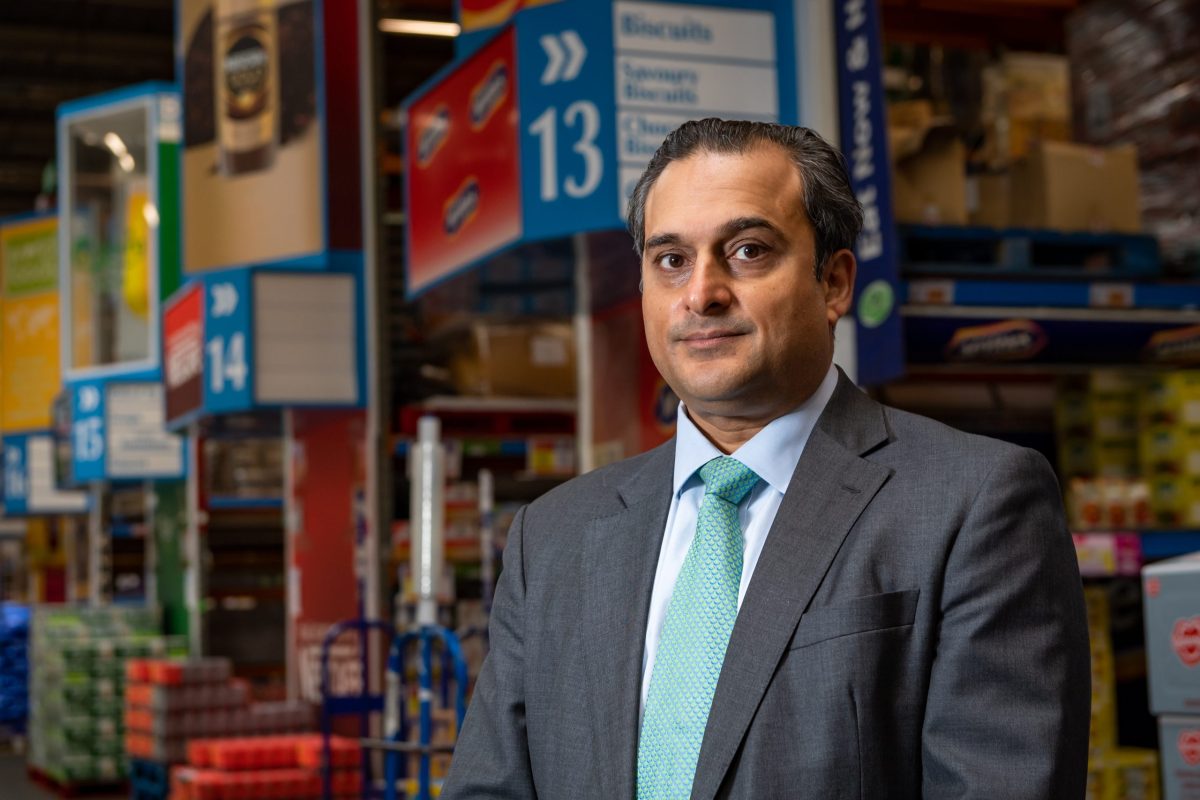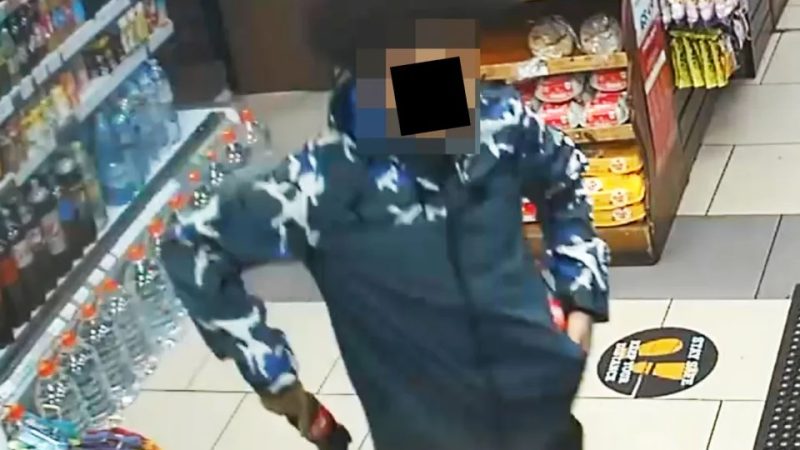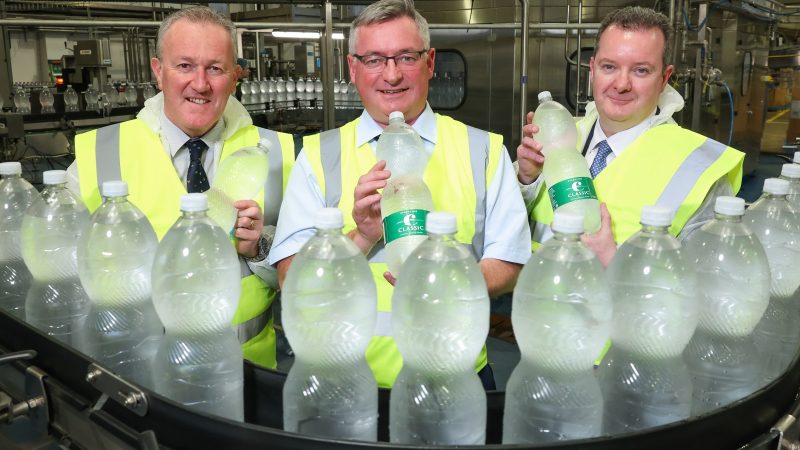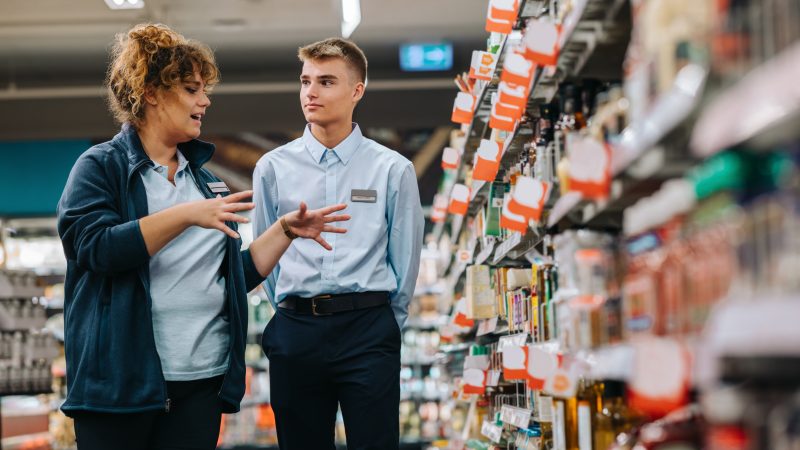The Bestway forward: Exclusive interview with Bestway Wholesale MD Dawood Pervez

Bestway Wholesale MD Dawood Pervez reveals his childhood in retail, the chain’s plans for the newly acquired Costcutter chain and why Northern Ireland has the best convenience stores in the UK.
Dawood Pervez has been immersed in retail since as far back as he can remember.
His family business, Bestway, has grown from a single shop in Earls Court in the early 70s to become the UK’s 10th largest family-owned business, taking in cash and carry, pharmacy, rice milling and even real estate – but its origins and core is serving independent retailers.
The most recent move has been to acquire the Costcutter chain of independent retailers which includes 110 stores in Northern Ireland.
“I’ve been involved basically since I was a child. I have early memories of visiting my father in the Acton warehouse, seeing him multitasking, dealing with suppliers, dealing with customers, managing colleagues in the depot,” Dawood reveals.
“We were members of Landmark, so attending the Landmark conferences, even at the age of six I had a little suit that I would put on and attend the gala dinners.”
And there’s a tinge of the Undercover Boss to his teenage years when he was given a summer job in one of the company depots, passing himself off as a friend of the family.
“I would just work incognito – it was purely to understand what people were doing and not to be treated differently,” he says.
The entire business giant was founded by his astute father Sir Anwar Pervez who arrived from Pakistan in the 1950s and used his savings from his bus conductor job to buy the shop in Earl’s Court – the first of many, followed by a growing empire of cash and carry depots.
Diversification
From the 1990s the family embarked on diversification, investing in everything from rice milling to cement manufacturing to banking and pharmacy, while continuing to grow the wholesale business and acquire competitors such as Batleys, CJ Lang, Conviviality and most recently, Costcutter.
In the meantime, Dawood, who had studied law at Oxford, developed a career in international mergers and acquisitions at Linklaters – while occasionally working in some of the family shops. He returned to the family business in 2002, first concentrating on the legal function before taking on HR and the property portfolio.
Over the years he was to take responsibility for marketing, developing digital portals and the export division, earning the Queens Award for Enterprise in International Trade in 2012, before becoming trading director and finally managing director for the wholesale business.
“During my time it’s changed from a national cash and carry business to a fully-fledged delivery and cash and carry operator,” he says.
The most recent major move came a year ago when Bestway acquired the Costcutter chain, with responsibility for 110 retailers across Northern Ireland.
“A lot of people thought we were bold and brave doing an acquisition mid pandemic, but we are heavily imbued in this sector and we know the value of Costcutter and its business and its retailers. We knew it was a good deal for us and that it was a good home for that business, and a year on, I can say yes, absolutely that was correct,” Dawood says.
Costcutter in NI
The number of Costcutter stores in Northern Ireland had dwindled to around 110 as a number of retailers left when wholesale chain Palmer & Harvey went under.
“We have ambition to get them back again,” Dawood pledges.
“The Northern Ireland market has probably the best convenience stores in the UK full stop. We’ve got some amazing retailers, like Craigs in Derry or the Moutrays in Lurgan and you’ve also got Sean Clarke in Limavady. He’s a pretty special retailer in an amazing location – a big site and an amazing customer offer, really inspirational.
“We have no physical warehouse or distribution presence in Northern Ireland at this time. There’s a lot of uncertainty over what’s going to happen in that marketplace but it’s a good location.
“It’s a good market for independent retailers where you haven’t seen the same level of encroachment from multiple retailers, probably partly because the population density spread is different and also because they only got round to it later on and by then all the key locations and the key sites had already gone to independent family-owned businesses which is obviously fantastic. Long may that continue, and I think it will.”
Growth prospects
Dawood is keen to see Costcutter grow in Northern Ireland but is cautious about keeping that growth sustainable.
“We’re a very ambitious business. We exist purely so that we can serve independent retailers – we ourselves come from an independent retail background, we know what independent retailers need, we know what they want. Our purpose is to fulfil that and in the process of fulfilling that, we also have a good business,” he says.
“The only way this sector works is you’ve got to grow and you have to have ambition to grow and of course we have that desire to grow. We’re watching Northern Ireland very, very carefully, trying to understand what’s the best way for us to do so, but you can be fully assured that our intention is to do so.
“However, we’re very focused on keeping our existing customers happy and satisfied. There are opportunities for us to grow our business but we have to do it sustainably – you can’t just go out and do it in an irrational manner.
“So there is an opportunity for us to add say 10% to our existing store count, but I’m looking at it more strategically to understand how we can address the market better.”
Lockdown approach
In the first lockdown, Bestway led on standing up for the independent retail sector, he says, after the large multiples were viewed as securing top priority for supplies during the panic-buying phase.
“I took it upon myself to be the voice of independent retail and raised my deep concerns about the inequality of treatment and how the wholesalers supplying independent retailers needed to be prioritised,” he says.
“I always raised the point that there’s a whole chunk of the independent retail sector which supplies retail and is actually doing a good job and keeping their colleagues and ensuring that local communities are served, looking after the vulnerable.
“A lot of these community stores have that special touch; they know who’s in their area and looks after them, and more recognition should be given to that route to market in terms of ensuring the supply is there. I think those points did land and we were given some assistance in terms of the Cabinet Office and Defra in speaking to our suppliers and ensuring that they did up the availability to us.
“Of course, it was also really important to keep our colleagues and our customers safe and well – getting hold of PPE, getting that distributed, putting in processes and guidance around social distancing – all to give comfort to our colleagues that all reasonable steps were being taken. We all have a lot to thank our retail and wholesale colleagues for coming into work in difficult and frightening times to help communities gain access to everyday essentials.
“People didn’t want to travel very far to go and stand in a really busy supermarket to get a product, so that was one of the key things we focused on.”
Challenges
Like everyone, Bestway is currently wrestling with availability problems, supply chain problems and Covid impacts on supplies, but is working tirelessly with manufacturers to come up with solutions, including collecting product directly from ports and exploring alternative formats and products.
“We’ve also had to make sure that the trends are being followed so that for example, in the early stages of lockdown, impulse products and eat-now products reduced dramatically and take-home products increased dramatically,” Dawood says.
“So we had to shuffle our supply chain and shuffle our range to suit the shopper mission and explain to our retail customers that this was the right product for them to get for what was going on in the market, and then as things were unlocked and reopened we had to shuffle it back the other way.”
And while the threat from disruptors and multiples is always looming, Dawood believes many of these competitors are taking on extra cost and cannibalising profitable sales for less profitable sales, while independent retailers are already in a good place to adapt to customers’ changing behaviours.
“I think there’s a kind of undeniable force that people want to buy locally. And especially in urban locations people live very differently to the past – in that they want to buy some of their core products in a big shop, like kitchen roll, toilet roll, cleaning products, but what you see them do is buy locally and more often depending on what they’re doing any given evening.
“Local retailing is definitely where the future lies and anyone else who is trying to deliver into a locality from further afield is fundamentally taking on more cost. So I think this gives the local retailer a great opportunity to grow, and potentially the local retailer could cover a small area with deliveries too – there are lots of apps and technology that will allow them to do that while retaining their margin.
“I think that’s a good way forward because fundamentally you’ve got local retailers operating in a marketplace where they know their customers, they care about their customers, they look after their customers – which is that personal touch which you can’t beat,” Dawood says.
To read the full interview in the Neighbourhood Retailer yearbook, click HERE.







